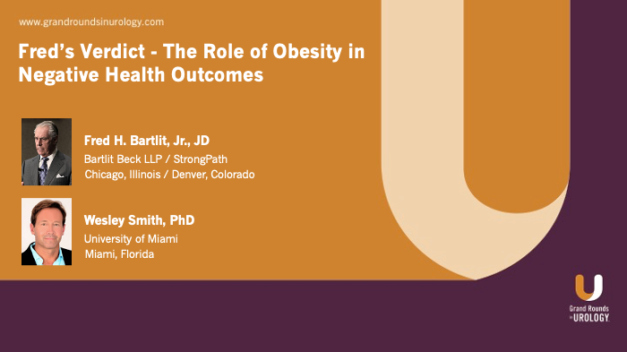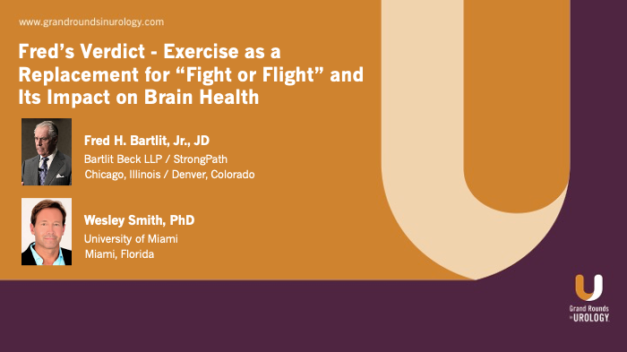Fred’s Verdict: The Role of Obesity in Negative Health Outcomes
Fred H. Bartlit, Jr., JD, founder of Bartlit Beck LLP and co-founder of StrongPath, talks with Wesley Smith, PhD, Chair of the Undergraduate Exercise Physiology Program at the University of Miami and the Chief of Product Development for StrongPath, about the role of obesity, in particular visceral obesity, in negative health outcomes. Fred leads with new information about obesity being a serious risk factor in severe COVID-19 cases. He states that obese patients are being hospitalized with COVID-19 at three times the rate of non-obese patients. Noting that obesity has long been linked to myriad comorbid conditions, Wesley highlights the importance of looking at visceral obesity, which is the deeper fat around internal organs and stems largely from inactivity and a highly processed diet. He further observes that the current standard for categorizing body composition, BMI, should be reconsidered. For example, a change in BMI may not be directly related to a healthy loss in weight, especially if a patient experiences a corresponding loss in strength. Wesley advocates for a simple waist circumference measurement because this measure is correlated with an increased risk of metabolic disease and cardiovascular disease. For men this means a waist circumference measuring 40 inches or higher and for women it is 35 inches or higher. He adds that metabolic obesity is a key component of a pre-diabetic state. Fred concludes by advising an emphasis on strength-building over just weight loss as this focuses on empowering individuals to seek positive gains.
Read More

